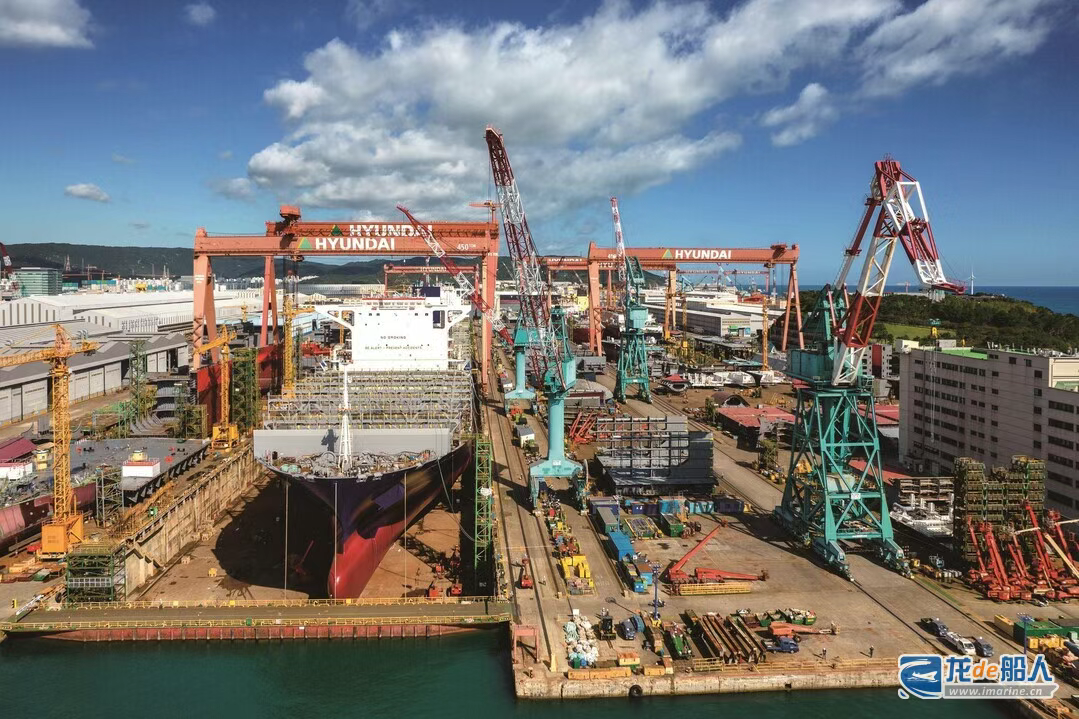Against the backdrop of South Korean President Lee Jae-myung instructing the Minister of Employment and Labor to “push forward with strong regulation and substantial downsizing, even at the risk of losing his position,” and demanding extreme measures such as punitive damages, investment restrictions, and loan restrictions against companies involved in workplace accidents, the HD Hyundai Heavy Industries Union (hereinafter referred to as “the Union”) has accused management of concealing industrial accidents.

Hyundai Heavy Industries’ labor union accuses management of concealing workplace accidents
Recently, the HD Hyundai Heavy Industries Labor Union held a press conference, strongly accusing HD Hyundai Heavy Industries of “stopping treatment for injured workers in work-related accidents for fear of being punished under the Serious Accident Punishment Law, and concealing work-related accidents through improper pressure, inducement and threats.”
The union claims that “as many as 476 workers have died at HD Hyundai Heavy Industries, making it a veritable ‘death factory’ and ‘the worst killer company’.”
In particular, regarding the electrical explosion at Goliath Unit 8 in December 2024, the union pointed out: “This was a serious accident that occurred when workers were forced to carry out maintenance work without cutting off the high-voltage AC power, resulting in the near-fatal loss of life of two workers.”
The union also strongly condemned the incident, saying, “After the incident, the injured workers were receiving treatment at a burn specialist hospital in Busan. However, HD Hyundai Heavy Industries circumvented the application of the Major Accident Penalty Act by bribing and threatening the injured workers and forcing them to terminate their work injury rehabilitation treatment. This is an outrageous act.”
Currently, South Korea’s Ministry of Employment and Labor (MOEL) has launched an industrial safety and health investigation into HD Hyundai Heavy Industries in connection with this burn accident. As the injured party will require more than three months of treatment, the accident has been classified as a “major accident” under South Korea’s Industrial Safety and Health Act.
If the injured persons require treatment for more than six months, HD Hyundai Heavy Industries may become subject to investigation under the Serious Accident Punishment Act. The Act stipulates that if two or more persons require treatment for more than six months in the same accident, it constitutes a serious industrial accident.
HD Hyundai Heavy Industries announces implementation of new safety and health management system
In response to the union’s allegations, HD Hyundai Heavy Industries announced on the same day that it would fully implement a new safety and health management system, The Safe Care, starting on August 18. The system designates nine core risk factors, including falls, pinching, electric shock, suffocation, and fire, as “absolutely prohibited accidents,” and stipulates that if relevant safety regulations are violated, operations must be stopped immediately, even if no actual accident occurs, and a zero-tolerance principle must be implemented.
HD Hyundai Heavy Industries officials stated, “The core of ‘The Safe Care’ is to completely eliminate the possibility of predictable major accidents occurring on site. The company will contribute to the achievement of national disaster reduction goals by proactively improving industrial safety standards.”
Looking back at HD Hyundai Heavy Industries’ record of industrial accidents, the severity of the situation becomes even more apparent. According to data released by the union, 476 workers have died in industrial accidents since the company was founded in 1974. For example, in February 2024, one person died and one person was seriously injured due to the detachment of APS during the upper module sliding operation at the HD Hyundai Heavy Industries shipbuilding site; on October 26, a worker died of argon asphyxiation in the confined space of a methanol storage tank.
Labor-management conflicts intensify, new measures taken by employers questioned
Although HD Hyundai Heavy Industries has announced a solution, the union remains skeptical and believes that the company is “taking only superficial measures in the absence of substantial safety improvements, with the aim of evading fundamental responsibility.”
In terms of safety, the union also questioned the sharp increase in skin rashes among outsourced workers in the shipyard’s coating department, believing that the cause was related to the use of solvent-free coatings, and demanded that the employer stop using these coatings and conduct toxicity testing through a professional agency. The union also claimed that “the employer attributed the workers’ skin rashes to individual allergic reactions.”
South Korean industry insiders say, “The government’s determination to prevent workplace accidents won’t really work unless it listens to what workers and unions are saying. The top priority is to rebuild trust between labor and management and come up with some real safety measures.”
In addition to safety issues, HD Hyundai Heavy Industries’ management and labor representatives are also engaged in intense discussions over this year’s wage issues, with the provisional agreement previously reached between the two sides having been rejected by union members.


